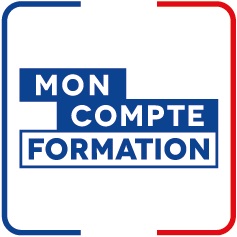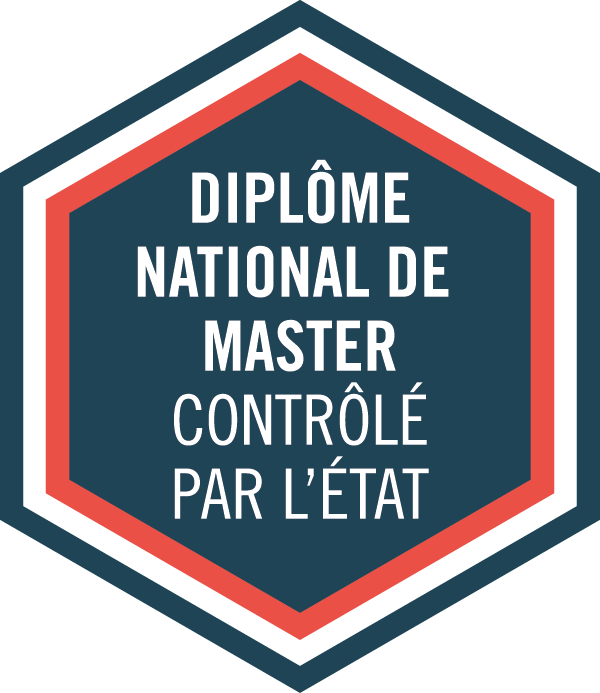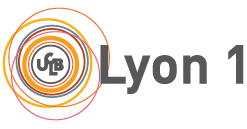- Domaine : Masters du domaine SCIENCES ET TECHNOLOGIES
- Diplôme : Master
- Mention : Nanosciences et nanotechnologies
- Parcours : M1 Nanosciences et nanotechnologies
Présentation :
Modalité de formation :
Formation diplômante
Nature de la Formation :
Diplôme national
Niveau de recrutement :
BAC+3, BAC+4
Niveau de sortie :
BAC+5
Durée en semestres : 4 semestres
Total du volume horaire :
minimum : 1200h
Lieux de formation :
Cette formation est dispensée principalement sur le(s) site(s) suivant(s) :
- Villeurbanne - La Doua
- Ecully
Diplôme co-accrédité :
Cette formation est co-accréditée avec le(s) établissement(s) suivant(s) :
- Ecole Centrale de Lyon
- INSA de Lyon
Langues d'enseignement :
 Anglais
Anglais
Secteurs disciplinaires concernés :
- Biologie - Biochimie
- Chimie
- Electricité - Electronique - Automatique
- Matériaux
- Physique
- Sciences de l'ingénieur
Date de la dernière mise-à-jour : 24/07/2025
Description de la formation :
Le Master Nanoscale Engineering donne des compétences de base dans les disciplines sur lesquelles reposent les champs d’applications des nanotechnologies (télécommunications, pharmacologie, matériaux…), puis renforce les compétences dans un domaine spécifique.
Il prépare à une carrière académique ou à une carrière au sein de grandes entreprises internationales.
Cett formation est dispensée exclusivement en anglais.
- En M1, 400h + 2 projets de recherche de 2 mois chacun, en laboratoire de recherche
- En M2, 300h + stage de 6 mois en laboratoire ou en entreprise
Compétences attestées :
Les enseignements théoriques et pratiques portent sur l’élaboration, la caractérisation et la conception de structures nanométriques en s’appuyant sur les plateformes technologiques de 3 grands laboratoires lyonnais : ingénierie quantique, physique des semiconducteurs, biocapteurs, photonique, analyse de surfaces, cellule solaire, propriétés magnétiques, ingénierie cellulaire, propriétés intellectuelles, éthique, conduite de projet.
Poursuites d'études :
Les débouchés du Master NSE sont de 2 types :
- Débouchés industriels : les principaux sous-domaines industriels recouverts par les nanotechnologies sont classiquement l’électronique, l’industrie des matériaux (usage et élaboration), les biotechnologies (analyse et pharmacologie) et les outils et procédés (caractérisations et procédés). Les pôles de compétitivité de la Région Rhône-Alpes recouvrent une partie de ces industries : Axelera (chimie-environnement), Biopôle et Minalogic, et les entreprises adhérant à ces Pôles représentent des possibilités d’insertion professionnelle importantes pour les étudiants du Master NSE.Notre ambition est de créer des relations avec ces entreprises, pour permettre un engagement pluriannuel avec un accueil de stages M2 en entreprise.
- Débouchés vers le doctorat et l’emploi scientifique : les laboratoires sur lesquels s’adosse ce projet de Master recrutent, chaque année plus de 40 doctorants (INL : 20 doctorants dont 7 allocataires de recherche ; LPMCN 8 doctorants dont 5 allocataires de recherche ; MATEIS, 15 doctorants et 3 allocataires de recherche). Ces doctorants ont tous un financement de thèse, le nombre annuel d’allocations (MRES, AMN) étant de 15.Ainsi, les futurs étudiants du Master NSE se verront proposer la possibilité de poursuivre leurs études par un doctorat. De plus, dans une période de déficit récurrent de jeunes scientifiques, le Master NSE peut contribuer à former un nombre significatif de scientifiques débutants.
Program Description :
Nanoscale objects exhibit many novel and extraordinary properties that are not found in their macroscopic counterparts. The ability to control matter at the nanoscale will therefore benefit all branches of engineering in the next decades, and well-known devices will acquire new features due to manufacturing processes that integrate nano-scale structures. Moreover, nanoscale engineering embodies the convergence of physics, electronics, life sciences and chemistry, and as such it provides ample opportunities to master the challenges of the future in fields as diverse as healthcare, sustainable development, energy efficiency, and many more.
The Master of Nanoscale Engineering offers you the opportunity to explore this challenging field in a stimulating scientific and cultural environment. The program is dedicated to a multidisciplinary and international approach and it is suited equally well for students planning an academic or an industrial career. The two-year curriculum provides both the theoretical basis and the practical expertise in all fields related to the fabrication, the characterization and the design of nanoscale structures and systems.
This training is only dispensed in English.
A key educational concept is that for at least half of the curriculum, the student is immersed in a high quality research environment. During the academic year, practicals and projects are carried out in research institutions participating to the program and thesis projects are completed in research laboratories and industries. Ethical and societal impacts of nanotechnology are also addressed during seminars.
Potential Students and Prerequisites :
A Bachelor degree in the field of science or engineering, for example Physics, Chemistry, Biochemistry, Electrical Engineering, or Material Science, is required to be eligible for the Master of Nanoscale Engineering. The minimum number of associated credits is 180, which normally corresponds to having completed a three-year Bachelor program. Furthermore, a reasonable command of the English language (spoken and in written form) is necessary. However, students have the right to receive French versions of all exams and to submit their Master thesis in French if they prefer.
Note that it is possible to apply directly for the second year of the program if you have already completed - or if you are in the process of completing - a nanotechnology-related Master year at another university.
Descrizione del programma :
La ragione principale che fa delle nanoscienze e nanotecnologie un campo di studi e di applicazioni in piena crescita viene dal fatto che la scala "nanometrica" provoca dei comportamenti qualitativamente nuovi e radicalmente diversi dai sistemi massivi.
Inoltre lo sviluppo delle nanotecnologie è reso possibile dalla convergenza di settori inizialmente indipendenti : fisica, chimica, microelettronica, biologia, ecc..., che permettono di costruire, assemblare e caratterizzare degli oggetti di scala nanometrica.
Il Master "Nanoscale Engineering" (NSE) si propone di sviluppare una doppia competenza, da un lato per poter comprendere dal punto di vista fondamentale le proprietà di questi nanosistemi, e dall'altro, la conoscenza delle nuove tecnologie associate.
Il Master Nanoscale Engineering è costituito da due anni di studi, M1 e M2, durante i quali gli studenti potranno seguire seminari scientifici e industriali, anche con aspetti economici, societali e etici, nel campo dei "nano". La formazione comprende anche uno stage in laboratorio o industriale all'anno.
Pubblico interessato :
L'iscrizione si fa su dossier e l'accettazione e' data da una Commission Pedagogica.
Tutti gli insegnamenti sono in inglese, è quindi richiesta una buona conoscenza della lingua, che dovra' essere giustificata (es. TOEFL, IELTS, o in seguito a intervista anche telefonica).
Opportunità di lavoro e ulteriori studi :
- Impieghi nell'industria nei principali settori delle nanotecnologie (industria dei materiali, elettronica, biotecnologie, processi industriali, ...). Il tessuto locale Rhone-Alpes possiede una varietà di queste industrie (Axelera (chimie-environnement), Biopôle et Minalogic, ...).
- Proseguimento verso il Dottorato e ricerca scientifica : nei laboratori universitari o in partenariato con le industrie
Beschreibung des Studienganges :
Der Master of Nanoscale Engineering ist ein zweijähriger internationaler Masterstudiengang (120 ECTS Punkte), der eine breite Ausbildung in der Nanotechnologie und allen ihren Anwendungsfeldern (Materialwissenschaften, Elektrotechnik, Biotechnologie, etc.) bietet. Der Studiengang wird von der École Centrale de Lyon, der INSA de Lyon und der Université Claude Bernard gemeinsam angeboten; alle Lehrveranstaltungen werden in Englisch durchgeführt.
Spécificités et prérequis :
L’ensemble des enseignements étant prodigué en langue anglaise, les candidats devront justifier d’une bonne compréhension de l’anglais oral et écrit en présentant par exemple un score minimum de 6.0 pour l’IELTS ou au-dessus de 550 (version papier) ou 213 (version informatique) pour le TOEFL. La vérification du niveau d’anglais pourra être réalisée lors d’un entretien téléphonique si la Commission Pédagogique le juge nécessaire.
En M1 pour les titulaires d’une L3 de Sciences et Technologies ou diplôme équivalent d’une université étrangère (Bachelor).
En M2 pour les titulaires d’un M1 en France ou à l’étranger ou pour les élèves ingénieurs.
Public concerné :
Le Master Nanoscale Engineering est accessible au niveau M1 à tous les étudiants titulaires d’une Licence de Sciences et Technologies. L’autorisation d’accès est donnée par la Commission Pédagogique du Master après consultation du dossier de candidature.
L’accès au Master directement au niveau M2 est également possible pour des Elèves Ingénieurs de 3e année, les étudiants ayant suivi leur M1 dans un autre Master et pour des étudiants venant de l’étranger. L’autorisation d’accès est donnée par la Commission Pédagogique du Master qui pourra délivrer des équivalences et être amenée à imposer à ces étudiants de suivre certains cours du cursus M1.
Pour les élèves ingénieurs de l'INSA et de l'École Centrale de Lyon, la première année du master est confondue avec leur année d'école de niveau BAC+4. Il existe donc, pour ces étudiants, une possibilité d’intégration directe en M2. Les étudiants ingénieurs inscrits au master Nanoscale Engineering en M2, sont tenus de suivre des enseignements supplémentaires à leur cursus d’école et effectuent un stage final avec un contenu « recherche » obligatoire. Les UE/séminaires à suivre pour chaque élève sont définis cas par cas, et selon le parcours de l’étudiant, lors de l’examen du dossier par la Commission Pédagogique. Cette commission doit aussi vérifier le contenu « recherche » du stage avant son approbation. Les étudiants sont dispensés des modules de Management et de Propriété Intellectuelle.
Modalités d'accès :
Potential Students and Prerequisites :
A Bachelor degree in the field of science or engineering, for example Physics, Chemistry, Biochemistry, Electrical Engineering, or Material Science, is required to be eligible for the Master of Nanoscale Engineering. The minimum number of associated credits is 180, which normally corresponds to having completed a three-year Bachelor program. Furthermore, a reasonable command of the English language (spoken and in written form) is necessary. However, students have the right to receive French versions of all exams and to submit their Master thesis in French if they prefer.
Note that it is possible to apply directly for the second year of the program if you have already completed - or if you are in the process of completing - a nanotechnology-related Master year at another university.
Pubblico interessato :
L'iscrizione si fa su dossier e l'accettazione e' data da una Commission Pedagogica.
Tutti gli insegnamenti sono in inglese, è quindi richiesta una buona conoscenza della lingua, che dovra' essere giustificata (es. TOEFL, IELTS, o in seguito a intervista anche telefonica).
Liste des Unités d'Enseignement (UE) :
- Année 1
- Année 2
Semester 1
- Common Scientific Core Units:
-
Research Project 1 (9 ECTS)
-
Characterization Tools for Nanostructures (6 ECTS)
-
Surface Physics (6 ECTS)
-
Micro- and Nano-Fabrication 1 (3 ECTS)
- Elective Core Units (2 out of 3):
- Fundamental Bases of Science (3 ECTS)
- Biomolecules, Cells, and Biomimetic Systems (3 ECTS)
- Quantum Engineering (3 ECTS)
Semester 2
- Common Scientific Core Units:
- Research Project 2 (9 ECTS) *
- Micro- and Nano-Fabrication 2 (3 ECTS)
- Language (3 ECTS)
- Intercultural studies (3 ECTS)
- Language (3 ECTS)
- Intercultural Studies (3 ECTS)
- Elective Core Units:
-
Nanomechanics (3 ECTS)
-
Drug-delivery systems (3 ECTS)
-
Introduction to system design (3 ECTS)
-
Physics of Semiconductors 1 (3 ECTS)
-
Course in another program (3 ECTS)
*A minimum seven-week placement in a partner research laboratory
Semester 3
- Scientific Core Units: (Choose at least three)
- Micro, Nano-Photonics and Applications
- Bioengineering
- Surface Analysis Techniques
- Functional Materials
- Nanoelectronics and Information Technologies
- Elective Core Units:
- Nanotechnology for Energy and the Environment
- Physics of Semiconductors
- Computational Modeling of Nanoscale Systems
- Micro- and Nanofluidics
- Nanomagnetism and Spintronics
- Courses from Other Master's Programs
- Transversal Core Units:
- Intercultural Studies
- Group Research Project
- French or English as a Foreign Language
Semester 4
- Master's Thesis Project:
- A 5 to 6-month research project in an academic or industrial setting, either in France or abroad.
Indicateurs & Statistiques :
Les enquêtes sont réalisées par le Pôle Statistique d'Appui au Pilotage de la Formation et de la Vie Etudiante :
accéder aux statistiques de toutes les formations Commentaire sur l'insertion :
Graduates may pursue doctoral studies or join high-tech companies in France or internationally, such as Thales, CEA, STMicroelectronics, or Google. The majority opt for PhD programs, with a strong demand for master's-level educators and early-career scientists
Au vue des connaissances et des compétences acquises durant la formation, des stages réalisés et/ou des concours réussis, les diplômés de cette formation peuvent prétendre aux métiers suivants :
Chargé de recherche
Directeur études, recherche et développement
Enseignant chercheur
Ingénieur brevets
Ingénieur de recherche
Ingénieur en caractérisation des matériaux
Ingénieur matériaux
Responsable de laboratoire de recherche
Liste des métiers France Compétences (code ROME) :
Répertoire national des certifications professionnelles (RNCP) :
L'international dans la formation :
This is an international master.


















